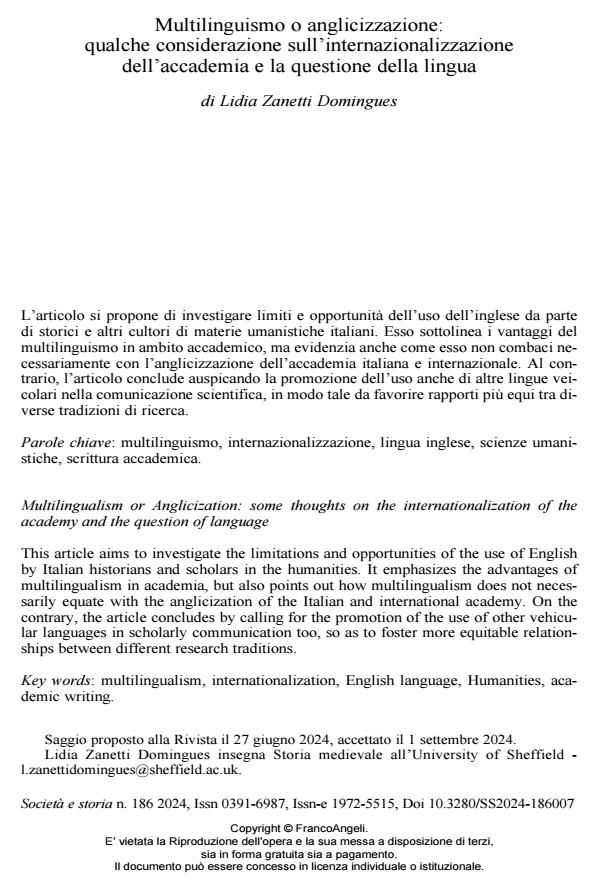Multilingualism or Anglicization: some thoughts on the internationalization of the academy and the question of language
Journal title SOCIETÀ E STORIA
Author/s Lidia Zanetti Domingues
Publishing Year 2024 Issue 2024/186
Language Italian Pages 8 P. 814-821 File size 146 KB
DOI 10.3280/SS2024-186007
DOI is like a bar code for intellectual property: to have more infomation
click here
Below, you can see the article first page
If you want to buy this article in PDF format, you can do it, following the instructions to buy download credits

FrancoAngeli is member of Publishers International Linking Association, Inc (PILA), a not-for-profit association which run the CrossRef service enabling links to and from online scholarly content.
This article aims to investigate the limitations and opportunities of the use of English by Italian historians and scholars in the humanities. It emphasizes the advantages of multilingualism in academia, but also points out how multilingualism does not neces- sarily equate with the anglicization of the Italian and international academy. On the contrary, the article concludes by calling for the promotion of the use of other vehicu- lar languages in scholarly communication too, so as to foster more equitable relation- ships between different research traditions.
Keywords: multilingualism, internationalization, English language, Humanities, aca- demic writing.
Lidia Zanetti Domingues, Multilinguismo o anglicizzazione: qualche considerazione sull’internazionalizzazione dell’accademia e la questione della lingua in "SOCIETÀ E STORIA " 186/2024, pp 814-821, DOI: 10.3280/SS2024-186007